|
History of Presidential Polls:
1982 - A novel experience; 1986 - Amidst turmoil
by Ranil WIJAYAPALA
Sri Lankans who enjoyed universal franchise since 1931, for the first
time exercised their voting right at a presidential election on October
20, 1982. That was after Sri Lanka adopted a new Constitution in 1978
replacing the 1972 Republican Constitution shifting the executive powers
from the Parliament to the President, the Head of State and the
Commander in Chief of Armed Forces.
|
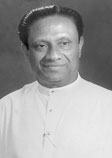 |
|
Ranasinghe
Premadasa |
|
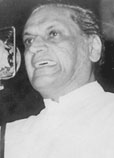 |
|
Hector
Kobbekaduwa |
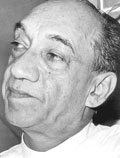 |
|
J. R.
Jayewardene |
|
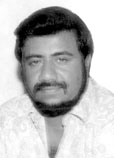 |
|
Osvin
Abeygunasekera |
|
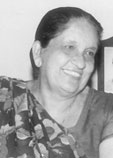 |
|
Sirimavo
Bandaranaike |
|
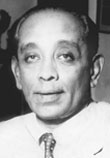 |
|
G. G.
Ponnambalam |
|
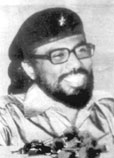 |
|
Rohana
Wijeweera |
J. R. Jayewardene was sworn in as the first Executive President of
the Democratic Socialist Republic of Sri Lanka on February 4, 1978.
He became the first executive President not after a presidential
election but after the Constitutional change in 1978, he became the
Prime Minister, after the UNP's victory at the general election held on
July 22,1977.
He continued to be the President for more than four and half years
till October, 1982.
Sri Lankan voters had their first presidential election after the
completion of the first term of the first executive President.
The 1982 Presidential election became a novel experience for Sri
Lankan voters as they got the opportunity to elect their Head of State
directly through their vote.
On August 30,1982, then Elections Commissioner, issued orders to hold
the first presidential elections, under the powers vested with him under
Section 2 of the Presidential Elections Act. Nominations were called for
elections from 8 am to 11 am on September 17, 1982.
This election to elect the President was called when Sri Lanka
Freedom Party leader Sirimavo Bandaranaike was deprived of her civic
rights after the findings of a Presidential Inquiry.
However, the first Presidential election became an important election
for the country as the issue of deprivation of Sirimavo Bandaranaike's
civic rights was one of the biggest issues.
During the nomination period on September 17, 1982 nine candidates
presented their nomination papers to the Elections Commissioner at the
Colombo Town Hall. However, only six nominations out of the nine were
accepted by the Commissioner as candidates. The first presidential
election was fixed for October 20, 1982.
The nomination papers of Mudiyanse Tennekoon, N.H. Keerthiratne and
S.C. Weerasooriya were rejected by the Commissioner.
Six candidates from six recognised political parties mere deemed
eligible to contest the election.
President J. R. Jayewardene contested the election from the United
National Party for his re-election bid under the Elephant symbol whilst
the Sri Lanka Freedom Party fielded Hector Kobbekaduwa as their
Presidential candidate under the Hand symbol. Apart from these two main
Presidential candidates Colvin R. de Silva from the Lanka Sama Samaja
Party under the symbol Key, Vasudeva Nanayakkara from the Nawa Sama
Samaja Party under the symbol Umbrella, the G. G. Ponnambalam from Akila
Ilankai Tamil Congress under the symbol Bicycle and Rohana Wijeweera
from the Janatha Vimukthi Peramuna under the symbol Bell were eligible
to contest the first Presidential election.
The re-election bid of J. R. Jayewardene became comparatively an easy
one as almost all major political parties from the Opposition had
fielded candidates for the Presidential election.
All candidates from the opposition criticised each other giving an
easy victory for President Jayewardene his re-election bid. He pledged
to defend democratic rights of the people and to create a law abiding
society.
The SLFP candidate was critical of the economic policies, corruption
and malpractices of the J. R. Jayewardene regime. The restoration of
civic rights of Sirimavo Bandaranaike and the establishment of a fully
Socialist Government were the main slogans of the campaign of SLFP
candidate Kobbekaduwa.
All three other candidates, Colvin R. de Silva, Vasudeva Nanayakkara
and Rohana Wijeweera criticised both UNP and the SLFP during the
election campaign. The sole Tamil candidate G.G. Ponnambalam said that
Tamils should be united to show their strength at the presidential
election.
On the elections date an 81.06 percent voter turnout was reported as
polls were conducted in 6,985 polling stations countrywide. A total of
6,602,617 voters cast their votes.
Despite many predictions that J. R. Jayewardene would lose the
election, he managed to secure 3,450,811 votes, which was equivalent to
52.91 percent of the total valid votes. He was thus eligible to continue
his second term of Presidency for another six years. J.R. Jayewardene
was able to secure majority votes in almost all the districts except for
the Jaffna district where Hector Kobbekaduwa had a clear lead.
SLFP candidate Hector Kobbekaduwa was able to secure 25,48,438 votes.
That was 39.07 percent of the total valid votes. Therefore,
Jayewardene had a clear majority securing more than 50 percent of the
total valid votes.
Rohana Wijeweera from the Janatha Vimukthi Peramuna secured 273,428
votes, the third highest. G. G. Ponnambalam from the Tamil Congress
secured 1,73,934 votes. The other two candidates were able to secure
less than 100,000 votes (Dr. Colvin R. de Silva 57,532 and Vasudeva
Nanayakkara 17,005). However, all four candidates lost their deposits as
they were unable to secure five per cent of the total valid votes.
After the turbulent second term of President J.R. Jayewardene, in
1988 there was a continued debate about the possibility of fielding him
for the next Presidential election. Prior to the announcement of the
Presidential election President J. R. Jayewardene had to take a decision
about his candidacy at the next election as suggestions were made to
amend the 1978 Constitution enabling him to contest for a third term.
However, President Jayewardene took a decision not to go ahead with
this move. But the United National Party had a problem about deciding on
their candidate for the next presidential election since they had to
select their candidate out of R. Premadasa, the then Prime Minister, and
two powerful Minist ers of the J. R. Jayewardene Government, Lalith
Athulathmudali and Gamini Dissanayake.
President J. R. Jayewardene decided to have the presidential election
after the United National Party working committee decided to field R.
Premadasa as their presidential candidate. This time the SLFP did not
have any problem deciding about their candidate as SLFP leader Sirimavo
Bandaranaike had been given her civic rights by this time.
The nominations for the second presidential elections were called on
October 21, 1988 by the then Elections Commissioner and nominations were
accepted on November 10, 1988 from 9 a.m. to 11 a.m.
Since it was a period marred by violence both in the North East and
in the South due to LTTE activities, the Indian Peace Keeping Force's
presence and the JVP insurrection in the South special security
arrangements were in place around the Colombo Town hall building where
the Elections Commissioner was scheduled to accept nominations.
This time only three candidates handed over their nominations. Prime
Minister R. Premadasa from the UNP (Elephant), Sirimavo Bandaranaike
from the SLFP (Hand) and Osvin Abeygunasekera from the Sri Lanka
Mahajana Party (Eye) handed over their nominations.
The date for the election was fixed for December 19, 1988.
The campaigns of the three candidates were based on contemporary
issues North East problem, the presence of the Indian Peace Keeping
Force in Sri Lanka and poverty alleviation.
The SLFP candidate Sririmavo Bandaranaike started her campaign much
earlier from Anuradhapura and Polonnaruwa.
She had her first election rally after handing over nominations at
Nittambuwa on November 13, 1988.
The Mahajana Eksath Peramuna, Lanka Sama Samaja Party, Liberal Party,
All Ceylon Tamil Congress and the PLOTE supported her candidacy. The
Communist Party and the Nava Sama Samaja Party remained uncommitted to
any candidate.
The Janatha Vimukthi Peramuna which did not contest, carried out a
massive campaign to urge the public to boycott the election.
Sirimavo Bandaranaike carried out her election campaign against the
Indo Lanka Peace Accord, the 13th Amendment to the Constitution, the
presence of the Indian Peace Keeping Force in Sri Lanka, suppression of
political supporters and human rights violations by the Government.
Prime Minister Premadasa carried out a well orchestrated election
campaign addressing almost all the issues concerning the public. He
pledged to start the poverty alleviation program Janasaviya, to send
back the Indian Peace Keeping Force, de-merger of the North East, to
provide electricity and housing facilities, and to provide a mid day
meal for schoolchildren. He began his election campaign from Kandy.
Osvin Abeygunasekera from the Sri Lanka Mahajana Party carried out
his campaign independently in support of the Provincial Council system
and the Indo Lanka Peace Accord.
Due to an unofficial curfew imposed by the JVP in many parts of the
country urging the public to boycott the elections, there was a low
voter turnout on the elections date. People did not cast their vote
fearing death threats and blockade of public transport especially in the
Southern province and many other provinces. Only 5,186,223 voters (55.32
%) out of the 9,375,742 registered voters cast their votes on election
day since it was not held in a peaceful environment.
Elections Commissioner Chandrananda de Silva announced the final
result of the election. At the final count Ranasinghe Premadasa emerged
victorious obtaining 2,569,199 votes (50.43% of the total valid votes)
against the 2,289,960 (44.95 %) votes obtained by his main opponent
Sirimavo Bandaranaike from the SLFP.
The UNP secured a lead in the districts of Colombo, Kandy, Matale,
Nuwara Eliya, Hambantota, Vanni, Batticaloa, Digamadulla, Trincomalee,
Kurunegala, Polonnaruwa, Badulla, Moneragala, Ratnapura and Kegalle. The
SLFP won the districts of Gampaha, Kalutara, Galle, Matara, Jaffna and
Anuradhapura.
It was with a small margin Ranasinghe Premadasa secure more than 50
percent of the valid votes. He got only 21,810 votes more than 50
percent of the total valid votes. Osvin Abeygunasekera from the Sri
Lanka Mahajana Party obtained 235,719 (4.63%) votes and lost the
deposit.
Following his victory at the presidential election Ranasinghe
Premadasa took oaths on January 2, 1989 as the third executive President
of Sri Lanka and remained in power until he was killed in a suicide
blast carried out by a LTTE cadre on May 1, 1993 when he was
participating in the UNP May Day rally. D. B. Wijetunga, the then Prime
Minister was elevated to the Presidency. He was the only Executive
President who was not elected at a presidential election.
|
Presidential Election - 1982
Nominations date - September 17, 1982
Elections date - October 20, 1982
Candidate PoliticalParty Symbol Votes Obtained Percentage
J.R. Jayewardene United National Party (UNP) Elephant 3,450,811 52.91%
H.R.S.B. Kobbekaduwa Sri Lanka Freedom Party (SLFP) Hand 2,548,438 39.07%
Rohana Wijeweera Janatha Vimukthi Peramuna (JVP) Bell 273,428 4.19%
G.G. Ponnambalam Akila Illankai Tamil Congress (AITC) Bicycle 173,934 2.67%
Dr. Colvin R de Silva Lanka Sama Samaja Party (LSSP) Key 58,531 0.90%
Vasudeva Nanayakkara Nawa Sama Samaja Party (NSSP) Umbrella 17,005 0.26%
Number of registered voters 8,145,015
Number of polling stations 6,958
Total polled 6,602,617 81.06%
Valid votes 6,522,147
Number of votes
Equal to one half 3,261,073
Candidate who polled more than one-half of the valid votes
J.R. Jayewardene
Presidential Election - 1988
Nominations date - November 10, 1988
Elections date - December 19, 1988
Candidate Political Party Symbol Votes Obtained Percentage
Ranasinghe Premadasa United National Party (UNP) Elephant 2,569,199 50.43%
Sirimavo Bandaranaike Sri Lanka Freedom Party (SLFP) Hand 2,289,860 44.95%
Osvin Abeygunasekera Sri Lanka Mahajana Party (SLMP) Eye 235,719 4.63%
Number of Registered Voters 9,375,742
Total Polled 5,186,223 55.32%
Valid Votes 6,522,147
Number of Votes Equal to one half 3,261,073
Candidate who polled more than one-half the Valid Votes
Ranasinghe Premadasa |
|

